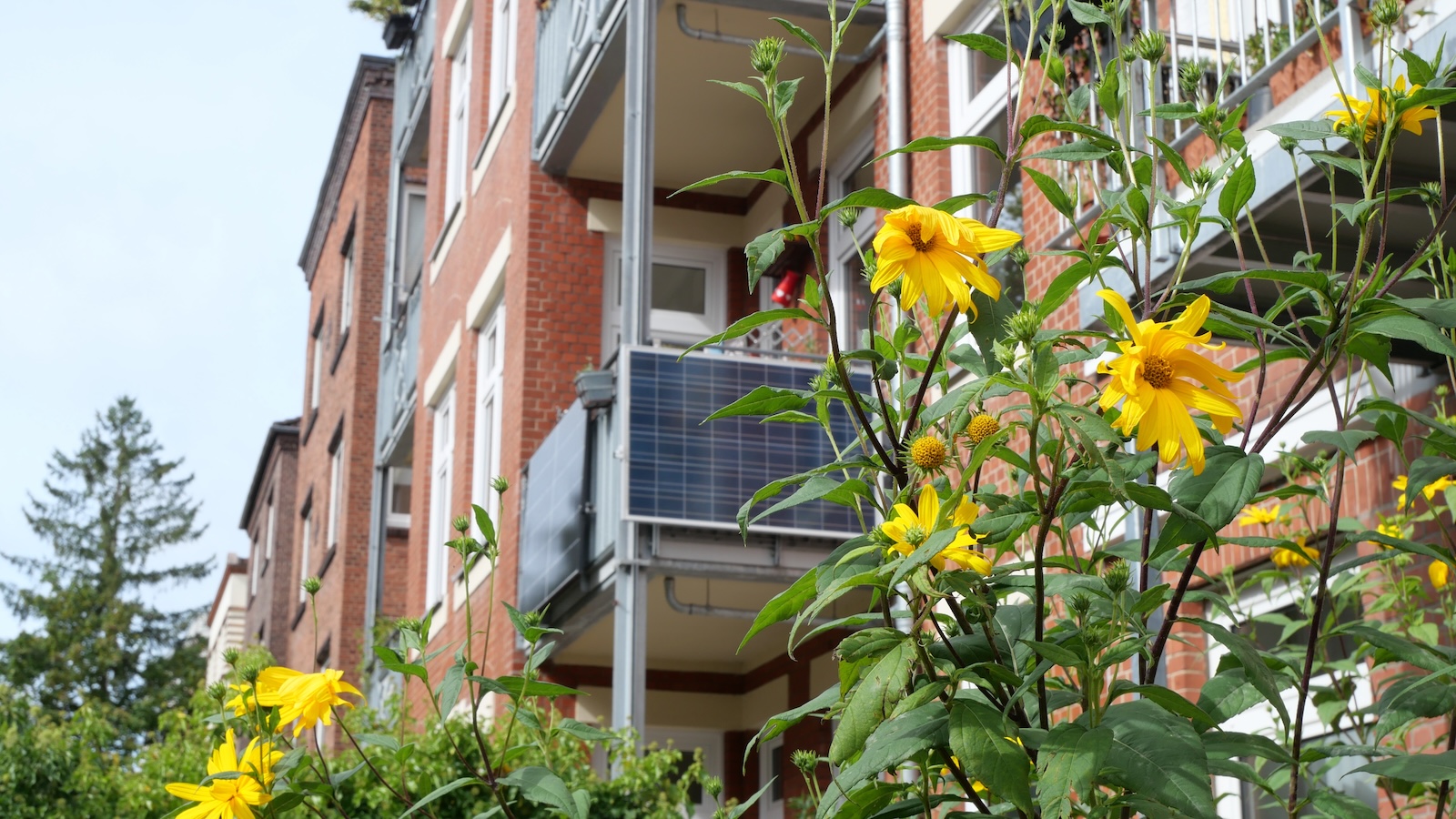My brother, who lives in germany, has told me about this before and i love the idea so much. Its so simple to implement and has no downsides whatsoever. The person renting the appartment buys the solar panel and if they leave they can easily take it with them.
And yet, i can not for the life of me get my land lord convinced to allow me to do this too despite it needing no permanent changes to the apartment… Solar panels rules are too strict here too, and i love that germany just embraced them like its nothing
Yet, some landlords refused it. There have been talks about a new regulation, but currently a landlord can more or less arbitrarily deny solar panels.
My “landlord” is a company owned 100% by the city I live in, they claim to embrace solar, but in order to get the permit to install a panel I need a structural review of the balcony, which a) costs a ton of money and b) I need some documentation (blueprints/plan) from my landlord. So far that sounds kind of reasonable, buuuut they refuse to give out any information about their buildings, so even if I would pay someone to prove the balcony won’t collapse, this guy can’t finish the report without knowing what the wall is made of.
So effectively, they managed to pull ye olde Kafka not-really-denial.
If you are talking about Germany, that is no longer true - landlords can not deny installations without sound reason:
https://www.tagesschau.de/wirtschaft/verbraucher/balkonkraftwerke-mieter-gesetzesaenderung-100.html
The surrounding laws were updated July this year, so it is a recent change.
It’s often said that probably the biggest challenge with switching over all the cars and heating to renewables here in Germany, is going to be the transport of so much electricity to all the homes.
That’s what I also really like about the balkonkraftwerk, that it produces electricity right where it’s used.I agree. I often discuss this with friends and the argument of “our electricity network cant supply all that power” (which is true) is one i often counter with adding more solar panels, even to apartments.
i mean yeah the power lines struggle (today) to transport these amounts of power around, but that’s mostly due to mismanagement and not an inherent problem with the technology itself. building big power grids is technologically possible, and i dare say it’s not even so difficult. it just needs to get done, which till today didn’t happen because there was simply no political will to invest into the grid.
it’s a complex problem. often, it seems to me, when investments are done, they’re investments into the wrong things. Like when germany was about to donate $10 billion to Intel (which fortunately was cancelled/(indefinitely?) delayed).
Like, it is utterly predictable that the cost of electricity will fall and eventually be significantly cheaper than fossil fuels. It makes utter economic sense to research into electrifying large-scale industrial processes including steel and cement production, yet from what i can tell these research areas are completely dormant. I can already tell the news of 2030 when the rest of the world will say that China is far ahead in electrifying these large-scale industrial processes, and everybody else has to catch up.
Where but not necessarily when it’s needed. Still it’s good to connect to grid through a wall plug, without expensive or permanent equipment.
The idea for the when-part is that people will have electric cars at home, which can double as a big battery, or as the other guy already said, you can buy dedicated storage, too.
You could also hook these storages up to the grid, and then have an algorithm decide to sell to the grid when electricity is expensive, or to charge from the grid while electricity is cheap, possibly even taking the weather forecast into account.
Definitely still lots of details to figure out, but I expect things to head that way…
Balkonkraftwerke (balcony solar) + feeding into the grid isn’t ideal IMO because it’s a bit more expensive and it creates problems with the grid.
- more expensive

“PV klein” and “PV groß” are small and big rooftop solar power plants.
“PV frei” are utility scale (large scale) solar power plants.as you can see, rooftop and small-scale solar power plants typically are more expensive in generation than large-scale utility power plants.
the only advantage of rooftop/balcony solar is that you don’t have to pay the grid operator to transport the power to you.
- annoying
if electricians need to work on the power line, until today they just have to cut off the power supply coming from the big generators. in the future, if homes can feed into the grid, it’s more difficult to ensure that there’s no voltage on the power lines, which makes repair works on them more difficult.





